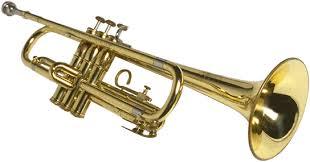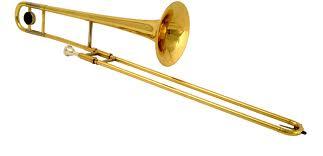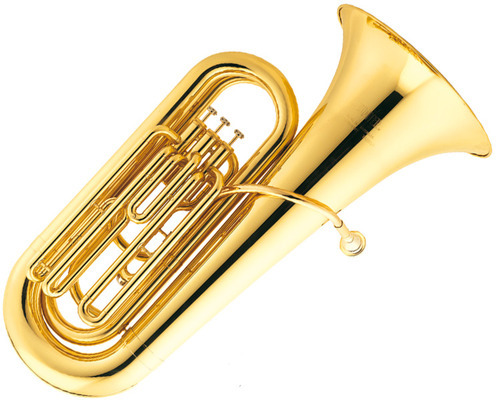Writing Description Notes:
Writing Description Notes:
Updated 10th July 2024 More writing tips, review tips & writing description notes
Facial Expressions
Masking Emotions
Smiles/Smirks/Grins
Eye Contact/Eye Movements
Blushing
Voice/Tone
Body Language/Idle Movement
Thoughts/Thinking/Focusing/Distracted
Silence
Memories
Happy/Content/Comforted
Love/Romance
Sadness/Crying/Hurt
Confidence/Determination/Hopeful
Surprised/Shocked
Guilt/Regret
Disgusted/Jealous
Uncertain/Doubtful/Worried
Anger/Rage
Laughter
Confused
Speechless/Tongue Tied
Fear/Terrified
Mental Pain
Physical Pain
Tired/Drowsy/Exhausted
More Posts from Loolybool and Others
Fantasy Guide to Building A Culture

Culture is defined by a collection of morals, ethics, traditions, customs and behaviours shared by a group of people.
Hierarchy and Social Structures

Within every culture, there is a hierarchy. Hierarchies are an important part of any culture, usually do ingrained that one within the culture wouldn't even question it. Hierarchy can be established either by age, gender or wealth and could even determine roles within their society. Sometimes hierarchy can may be oppressive and rigid whilst other times, ranks can intermingle without trouble. You should consider how these different ranks interact with one another and whether there are any special gestures or acts of deference one must pay to those higher than them. For example, the Khasi people of Meghalaya (Northern India), are strictly matrillineal. Women run the households, inheritance runs through the female line, and the men of the culture typically defer to their mothers and wives. Here are a few questions to consider:
How is a leader determined within the culture as a whole and the family unit?
Is the culture matriarchal? Patriarchal? Or does gender even matter?
How would one recognise the different ranks?
How would one act around somebody higher ranking? How would somebody he expected to act around somebody lower ranking?
Can one move socially? If not, why? If so, how?
Traditions and Customs

Traditions are a staple in any culture. These can be gestures or living life a certain way or to the way a certain person should look. Traditions are a personal detail to culture, they are what make it important. Tradition can dictate how one should keep their home, run their family, take care of their appearance, act in public and even determine relationship. Tradition can also be a double edged sword. Traditions can also be restrictive and allow a culture to push away a former member if they do not adhere to them, eg Traditional expectations of chastity led to thousands of Irish women being imprisoned at the Magdelene Laundries. Customs could be anything from how one treats another, to how they greet someone.
How important is tradition?
What are some rituals your culture undertakes?
What are some traditional values in your world? Does it effect daily life?
Are there any traditions that determine one's status?
Values and Opinions

Values and Opinions are the bread and butter of any culture. This is the way your culture sees the world and how they approach different life hurdles. These may differ with other cultures and be considered odd to outsiders, what one culture may value another may not and what opinion another holds, one may not. There will be historical and traditional reasons to why these values and opinions are held. Cultures usually have a paragon to which they hold their members to, a list of characteristics that they expect one to if not adhere to then aspire to. The Yoruba people value honesty, hard work, courage and integrity. Here are some questions to consider?
How important are these ethics and core values? Could somebody be ostracised for not living up to them?
What are some morals that clash with other cultures?
What does your culture precieved to be right? Or wrong?
What are some opinions that are considered to be taboo in your culture? Why?
Dress Code

For many cultures, the way somebody dresses can be important. History and ethics can effect how one is meant to be dressed such as an expectation of chastity, can impose strict modesty. While other cultures, put more importance on details, the different sorts of clothes worn and when or what colour one might wear. The Palestinian people (من النهر إلى البحر ، قد يكونون أحرارا) denoted different family ties, marriage status and wealth by the embroidery and detailing on their thoub.
Are there traditional clothes for your world? Are they something somebody wears on a daily basis or just on occasion?
Are there any rules around what people can wear?
What would be considered formal dress? Casual dress?
What would happen if somebody wore the wrong clothes to an event?
Language

Language can also be ingrained as part of a Culture. It can be a specific way one speaks or a an entirely different language. For example, in the Southern States of America, one can engage in a sort of double talk, saying something that sounds sweet whilst delivering something pointed. Bless their heart. I have a post on creating your own language here.
Arts, Music and Craft

Many cultures are known for different styles of dance, their artwork and crafts. Art is a great part of culture, a way for people to express themselves and their culture in art form. Dance can be an integral part of culture, such as céilí dance in Ireland or the Polka in the Czech Republic. Handicrafts could also be important in culture, such as knitting in Scottish culture and Hebron glass in Palestine. Music is also close to culture, from traditional kinds of singing such as the White Voice in Ukraine and the playing of certain instruments such as the mvet.
Food and Diet

The way a culture prepares or intakes or treats certain foods are important to a culture. In some cultures, there is a diet yo adhere to, certain foods are completely banned. With Jewish culture, pork is prohibited along with fish such as sturgeon, along with shellfish and certain fowl. Meat must also be prepared in a certain way and animal byproducts such as dairy, must never be created or even eaten around this meat. This is known as kosher. The way one consumes food is also important to culture. In some cultures, only certain people may eat together. Some cultures place important on how food is eaten. In Nigerian culture, the oldest guests are served first usually the men before the women. In Japanese culture, one must say 'itadakimasu' (I recieve) before eating. Culture may also include fasting, periods of time one doesn't intake food for a specific reason.
What are some traditional dishes in your world?
What would be a basic diet for the common man?
What's considered a delicacy?
Is there a societal difference in diet? What are the factors that effect diet between classes?
Is there any influence from other cuisines? If not, why not? If so, to what extent?
What would a typical breakfast contain?
What meals are served during the day?
What's considered a comfort food or drink?
Are there any restrictions on who can eat what or when?
Are there any banned foods?
What stance does your world take on alcohol? Is it legal? Can anybody consume it?
Are there any dining customs? Are traditions?
Is there a difference in formal meals or casual meals? If so, what's involved?
Are there any gestures or actions unacceptable at the dinner table?
How are guests treated at meals? If they are given deference, how so?
when did you get back on here? i thought you disapeared before april 1st to miss the boops by accident again (I mean this in a silly way, I miss you merryl)
lol im a lurker mostly i dont really post/reblog much but yeah im on here sometimes
yuppppp
#ocd #actuallyocd
While in general I do agree that there is a difference between intrusive thoughts and normal thoughts, the scrupulosity part of OCD is very good at hijacking your actual conscience and merging into it, which does result in my OCD thoughts with a moral bent more existing along a continuum...


procrastinated on art to finish this, the chronological timeline of the main chapters of the 1.X series. i made this for r99 OC purposes but found out interesting things on the way, either way it was fun!
im planning to continue but the transcript for 2.1 isn't done yet so its very difficult to date both 2.0 and 2.1 as a result. especially since 1.2 ALLEGEDLY has to fit somewhere in there, three events BEFORE 2.2 starts in november
i'll add anecdotes, character events and other things that can be dated within the timeline later on, as soon as i can figure out what to do with 2.0/2.1!
some highlights from my students’ romeo and juliet modern interpretation projects:
- someone made a username for friar laurence with 420 at the end - the same kid who put 69 in romeo’s username like i wouldn’t know what either of those things mean - the girl who added ‘clean’ at the end of all the songs on her juliet playlist like lmao girl i know spotify doesn’t have the clean version - the kid who said romeo and juliet killed each other - the weird dichotomy of kids who put love story on their playlist vs the kids who choose bad blood - the kid who wrote ‘get a room’ as tybalt’s comment on romeo’s couple pic - the kid who said ‘romeo is probably one of those douches who follows a ton of people so they follow him back and then he unfollows all of them’ - the one who legitimately used the word ‘alrighty’ do kids say this in their text messages???? i thought i was the one talking like an elderly person but okay - the one who made romeo’s username ‘montagoose’ - the only kid who acknowledged that posting about your secret relationship on instagram was a bad idea - the girl who wrote that romeo would unironically say ‘#blessed’. she’s right. - the one single solitary girl who wrote mercutio as gay as shakespeare did (she’s also the only one who used mercutio at all which is a tragedy but whatever) - the one who wrote romeo’s insta bio as ‘thus with a kiss i die… LOL RIP ME 😂💀’ - the one who made benvolio’s username benvoliYO
You're not immune to being the bully btw. You're not immune to being in the wrong
i'm having a stroek
FOR THOSE OF YOU WHO DO NOT KNOW
THIS IS A TRUMPET

THIS IS A TROMBONE

THIS IS A TUBA

AND THIS IS A FRENCH HORN

THANK YOU FOR YOUR TIME
Reblog if you didn’t write My Immortal
We’re going to find the author by process of elimination.
the emotion i just experienced is kind of indescribable
Isolde's udimo being a nightingale with a rose on its chest reminds me of the story of The Nightingale and the Rose, and how much it parallels Isolde.

The Nightingale stabbed its chest with thorn and sang to death so the Student could obtain a red rose and realize his dream with the girl he loved. But after being heartbroken, the Student abandoned the rose to focus on studying logic and philosophy.


Isolde as the Nightingale... Kakania as the Student... Manus and Heinrich as the Tree promising the red rose... the red rose symbolizing Kakania's dream... and Kakania abandoning/refusing Isolde's realization of her dream that has been twisted by Manus...
Do you. Do you see my vision
-
 imurmama-83 liked this · 1 month ago
imurmama-83 liked this · 1 month ago -
 gem-ofthefangirls liked this · 1 month ago
gem-ofthefangirls liked this · 1 month ago -
 goldenhazelnut liked this · 1 month ago
goldenhazelnut liked this · 1 month ago -
 slighttea liked this · 1 month ago
slighttea liked this · 1 month ago -
 murdersaints liked this · 1 month ago
murdersaints liked this · 1 month ago -
 lulubooau liked this · 1 month ago
lulubooau liked this · 1 month ago -
 din0meat liked this · 1 month ago
din0meat liked this · 1 month ago -
 unnecessarily-neurodivergent liked this · 1 month ago
unnecessarily-neurodivergent liked this · 1 month ago -
 uni120 liked this · 1 month ago
uni120 liked this · 1 month ago -
 obae-x reblogged this · 1 month ago
obae-x reblogged this · 1 month ago -
 unbaed-you liked this · 1 month ago
unbaed-you liked this · 1 month ago -
 crazy-wheel liked this · 1 month ago
crazy-wheel liked this · 1 month ago -
 carryingthebannershitposts liked this · 1 month ago
carryingthebannershitposts liked this · 1 month ago -
 horrorsydrom liked this · 1 month ago
horrorsydrom liked this · 1 month ago -
 bredstix16 liked this · 1 month ago
bredstix16 liked this · 1 month ago -
 instantrebelgothtoad liked this · 1 month ago
instantrebelgothtoad liked this · 1 month ago -
 standbehindhousestark liked this · 1 month ago
standbehindhousestark liked this · 1 month ago -
 aboundlessimagination reblogged this · 1 month ago
aboundlessimagination reblogged this · 1 month ago -
 aboundlessimagination liked this · 1 month ago
aboundlessimagination liked this · 1 month ago -
 alisha-32 liked this · 1 month ago
alisha-32 liked this · 1 month ago -
 alisha-32 reblogged this · 1 month ago
alisha-32 reblogged this · 1 month ago -
 theangryhimbo liked this · 1 month ago
theangryhimbo liked this · 1 month ago -
 scribermousefromvegas reblogged this · 1 month ago
scribermousefromvegas reblogged this · 1 month ago -
 scribermousefromvegas liked this · 1 month ago
scribermousefromvegas liked this · 1 month ago -
 kor-ee-an-door liked this · 1 month ago
kor-ee-an-door liked this · 1 month ago -
 sunthenerd liked this · 1 month ago
sunthenerd liked this · 1 month ago -
 vampiresfoundmynightmares liked this · 1 month ago
vampiresfoundmynightmares liked this · 1 month ago -
 phr0g liked this · 1 month ago
phr0g liked this · 1 month ago -
 deepseah0rr0r liked this · 1 month ago
deepseah0rr0r liked this · 1 month ago -
 alisannagordn liked this · 1 month ago
alisannagordn liked this · 1 month ago -
 aphrodite-has-no-sway-over-me liked this · 1 month ago
aphrodite-has-no-sway-over-me liked this · 1 month ago -
 yumomo liked this · 1 month ago
yumomo liked this · 1 month ago -
 a-call-to-motion reblogged this · 1 month ago
a-call-to-motion reblogged this · 1 month ago -
 a-call-to-motion liked this · 1 month ago
a-call-to-motion liked this · 1 month ago -
 ih8choosingusernames liked this · 1 month ago
ih8choosingusernames liked this · 1 month ago -
 caberlots liked this · 1 month ago
caberlots liked this · 1 month ago -
 saidinpassing liked this · 1 month ago
saidinpassing liked this · 1 month ago -
 raspberry-kirberry liked this · 1 month ago
raspberry-kirberry liked this · 1 month ago -
 raspberry-kirberry reblogged this · 1 month ago
raspberry-kirberry reblogged this · 1 month ago -
 taco-world liked this · 1 month ago
taco-world liked this · 1 month ago -
 teenagetreeherringparty liked this · 1 month ago
teenagetreeherringparty liked this · 1 month ago -
 blackjack-otter13 liked this · 1 month ago
blackjack-otter13 liked this · 1 month ago -
 deathdrawings3456 liked this · 1 month ago
deathdrawings3456 liked this · 1 month ago -
 kotoriarlert liked this · 1 month ago
kotoriarlert liked this · 1 month ago -
 777blsdd liked this · 1 month ago
777blsdd liked this · 1 month ago -
 constantfragmentation liked this · 1 month ago
constantfragmentation liked this · 1 month ago -
 et3rnalsakura reblogged this · 1 month ago
et3rnalsakura reblogged this · 1 month ago -
 et3rnalsakura liked this · 1 month ago
et3rnalsakura liked this · 1 month ago -
 hookerpissgourmet reblogged this · 1 month ago
hookerpissgourmet reblogged this · 1 month ago